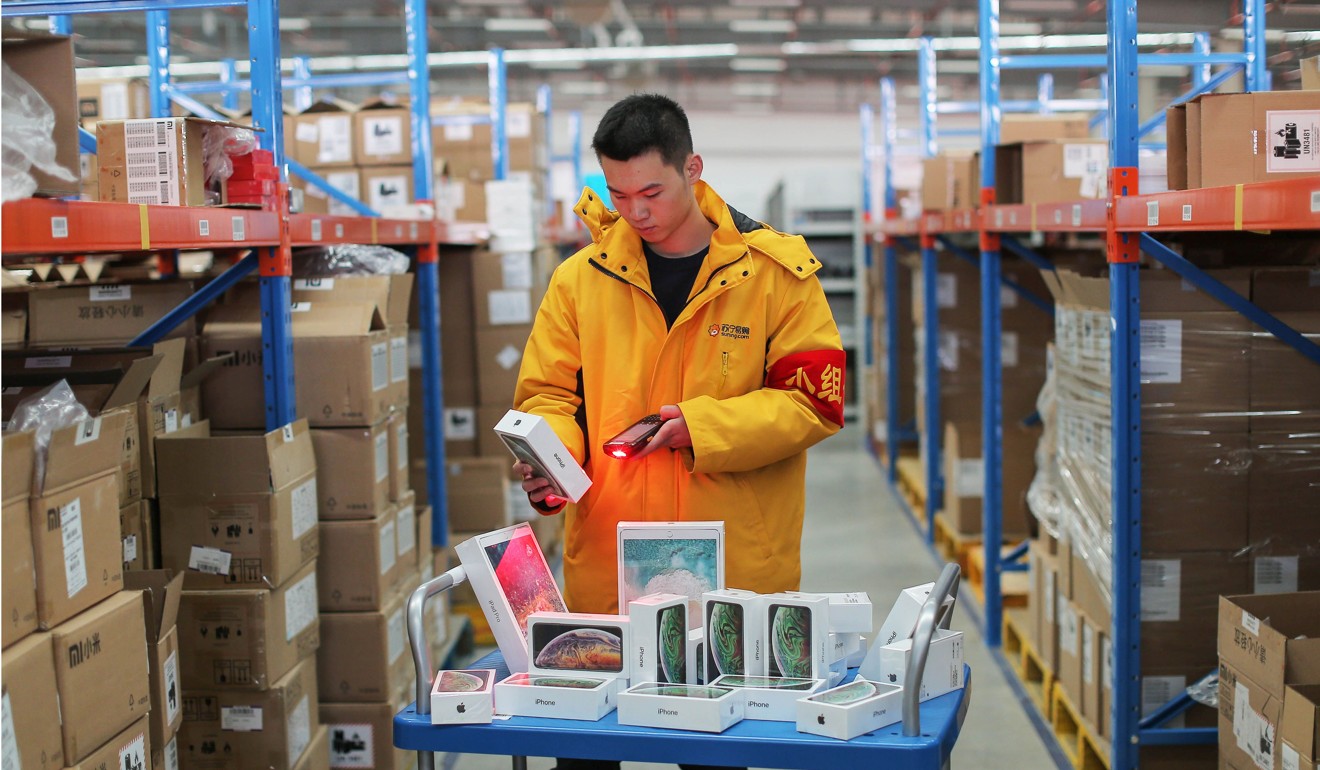
US likely 'biggest loser' if iPhones, laptops go on tariff list
- Additional tariff on the devices would make little impact on China, analyst says
US companies are set to bear the biggest losses should American president Donald Trump proceed with a 10 per cent tariff on laptops and smartphones made in China.
In particular, Apple, whose iPhones and MacBooks are mostly assembled in China, could be hit hard while its Chinese partners remain unscathed, a Jefferies analyst said.
The majority of profits from Apple products are made from the US, followed by Korea, Japan, Taiwan and a few European countries, according to Conor O’Mara, a tech-media-telecoms specialist at Jefferies in Hong Kong. “China is a tiny fraction of the value add”, he said, in an email on Tuesday.
Some US$250 billion worth of tariffs have been slapped on goods from China and duties are set to increase from 10 per cent to 25 per cent on another US$200 billion worth of goods not already on the list. The move is part of measures to reduce trade deficit with China and alleged theft of American intellectual property and forced transfer of technology, according to the office of the US Trade Representative.
Cupertino, California-based Apple, which already lost 20 per cent of its value in a tech market rout since October, risks further losses when tariffs on its devices come into effect on January 1 next year.

The US administration had initially omitted made-in-China smartphones and laptops to minimise impact of the trade war on consumers.
But in an interview with the Wall Street Journal this week, Trump admitted the possibility of including the devices. “I mean, I can make it 10 per cent, and people could stand that very easily ... the brunt of it is being paid by China.”
Apple did not immediately reply for comment.
Earlier this month, chief executive Tim Cook said Apple was happy with its performance in China, where revenue grew 16 per cent to US$11.4 billion – the fifth quarter in a row the company has had double-digit growth in the market. However, Cook also announced that the company would no longer be reporting iPhone sales numbers — or sales numbers for any of its products — on future earnings calls, sparking speculation that iPhone sales are declining.

